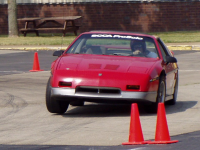Second port for limit switches?
- AMelvin
- Offline
- New Member
-

Less
More
- Posts: 17
- Thank you received: 0
13 Apr 2014 10:10 #45897
by AMelvin
Second port for limit switches? was created by AMelvin
If I'm using six axis on the breakout board, do I need a second breakout board for the limit switches or can I use a simple TTL circuit for this?
Please Log in or Create an account to join the conversation.
- ArcEye
- Offline
- Junior Member
-

Less
More
- Posts: 25
- Thank you received: 758
13 Apr 2014 13:34 - 13 Apr 2014 13:35 #45901
by ArcEye
Replied by ArcEye on topic Second port for limit switches?
You can chain them all together in series and just use one input.
If you have managed to connect 6 axes, presumably you need another port anyway for charge pump / enable, coolant relay, spindle relay etc
regards
If you have managed to connect 6 axes, presumably you need another port anyway for charge pump / enable, coolant relay, spindle relay etc
regards
Last edit: 13 Apr 2014 13:35 by ArcEye.
Please Log in or Create an account to join the conversation.
- AMelvin
- Offline
- New Member
-

Less
More
- Posts: 17
- Thank you received: 0
13 Apr 2014 22:59 #45912
by AMelvin
Replied by AMelvin on topic Second port for limit switches?
I read where limit switches are connected in a single loop but felt uncomfortable with that type hook up.
The Linux documentation is some what limited on this subject. Where can I research more on this?
The Linux documentation is some what limited on this subject. Where can I research more on this?
Please Log in or Create an account to join the conversation.
- ArcEye
- Offline
- Junior Member
-

Less
More
- Posts: 25
- Thank you received: 758
14 Apr 2014 00:32 #45917
by ArcEye
Replied by ArcEye on topic Second port for limit switches?
I dont know of any actual docs, it is extremely simple and safe.
One switch breaks, the circuit breaks and everything stops.
It would be very rare that you could not just look at the machine and know immediately which switch had triggered.
Additionally, if you have your soft limits set properly, it should be impossible to hit the physical limit switches unless you lose steps.
I cant remember the last time I actually did that.
regards
One switch breaks, the circuit breaks and everything stops.
It would be very rare that you could not just look at the machine and know immediately which switch had triggered.
Additionally, if you have your soft limits set properly, it should be impossible to hit the physical limit switches unless you lose steps.
I cant remember the last time I actually did that.
regards
The following user(s) said Thank You: AMelvin
Please Log in or Create an account to join the conversation.
- BigJohnT
-

- Offline
- Administrator
-

Less
More
- Posts: 6999
- Thank you received: 1177
14 Apr 2014 18:28 - 14 Apr 2014 18:29 #45937
by BigJohnT
Hooking up limit switches as normally closed and in a loop is the normal way. If you cut a wire or any switch opens then the machine stops.
If you have the I/O hooking each switch up to an input is also a common way to connect limits.
JT
Replied by BigJohnT on topic Second port for limit switches?
I read where limit switches are connected in a single loop but felt uncomfortable with that type hook up.
The Linux documentation is some what limited on this subject. Where can I research more on this?
Hooking up limit switches as normally closed and in a loop is the normal way. If you cut a wire or any switch opens then the machine stops.
If you have the I/O hooking each switch up to an input is also a common way to connect limits.
JT
Last edit: 14 Apr 2014 18:29 by BigJohnT.
Please Log in or Create an account to join the conversation.
- Todd Zuercher
-

- Away
- Platinum Member
-

Less
More
- Posts: 5034
- Thank you received: 1467
15 Apr 2014 10:25 #45960
by Todd Zuercher
Replied by Todd Zuercher on topic Second port for limit switches?
As to adding multiple ports. While it may or may not be necessary for your set up. adding and using multiple LPT ports to your pc is not a problem for Linuxcnc. I have a set up that uses a 2 port parallel port PCI card, in addition to the motherboards built in port. While I am not using nearly all of the io on any of the three ports, adding the 3rd port to this machine made connecting it infinitely simpler, since I was adding controls to an existing setup that did not give easy access to the unused io on the 2 LPT ports it was using. And basic breakout boards are cheap.
Please Log in or Create an account to join the conversation.
Time to create page: 0.182 seconds
